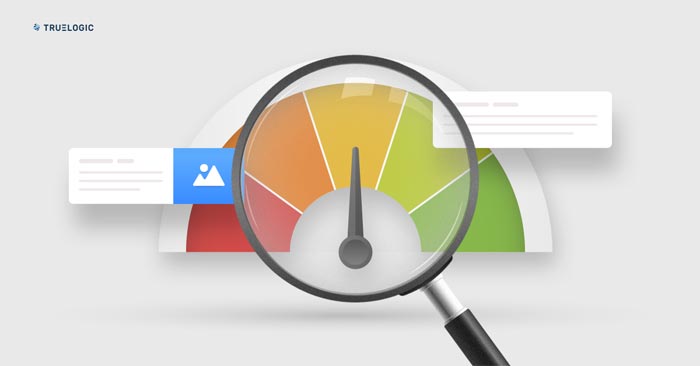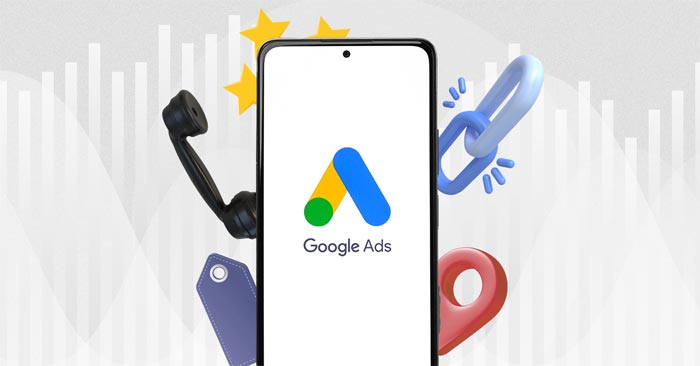PPC: What is a Quality Score

Success at PPC (pay-per-click) doesn’t require a large budget. We’ve worked on enough campaigns in various niches to know this firsthand. For all our clients, the goal of our PPC management services is to maximize return of investment for every dollar spent.
While a large marketing budget is a significant advantage, it doesn’t guarantee results. And there are always businesses that want to work with what they have and get the most out of that.
Maximizing results on a fixed budget can only be achieved through strategic planning and a series of tactics that improve your campaign’s performance. One of these strategies is improving your AdWords Quality Score.
If this is your first time hearing about Quality Score, or why it’s important to your PPC campaign, right now is the best time to catch up.
What is a Quality Score?
In the simplest definition, AdWords Quality Score (QS) is a Google metric that determines the quality of ads. Your QS is about how well your ad meets the users’ needs, and this involves offering both value and relevance.
A Quality Score is a numerical value from1 to 10 – a measure of how relevant Google believes your ads, keywords, and landing pages are collectively. A higher score means higher ad rankings and lower costs. Likewise, the lower the score, the higher the cost per click.
For years, people have been scrambling to improve their QS – and for good reason. If you can improve your QS, you can save more money.
Here’s how:
- The higher the Quality Score, the lower your cost per click.
- The lower the cost per click, the lower the cost per conversion.
- The lower the cost per conversion, the greater the savings.
Given the seemingly paramount importance of QS, some advertisers have dubbed Quality Score “the Holy Grail of Google AdWords”.
However, Quality Score is also one of the most misunderstood elements in AdWords, due to the number of myths and misinformation peddled to marketers.
A variety of factors go into determining a QS, and like SEO, it isn’t absolutely understood which of these factors matter more than others.
How to Improve Your Quality Score
Despite several ambiguities, many marketers agree on the most effective ways to improve your Quality Score. They are:
Improve Keyword Relevancy
Choosing the keyword research phase of the PPC campaign is the first step to increasing your score. Focus on appropriate, long-tail keywords, as you’re likely to get highly-targeted traffic from these. Establish smaller, targeted ad groups, instead of having too many broad groups. The more targeted the group, the more likely you’ll reach the exact users who are ready to buy your product or service.
Remember to eliminate negative keywords that can drain your budget, or face the risk of damaging your Quality Score.
Optimize Your Landing Page
The landing page experience is becoming a bigger factor in determining Quality Score. As a cardinal rule, it must provide your audience with a cohesive journey from their initial search to the conversion.
To improve landing page relevancy, the landing page must first be optimized. Be mindful of:
- Content: Is it original and unique to your landing page or site?
- Credibility: Are you trustworthy? Make sure your About Us and Contact Us sections have all the essential information.
- User Experience: Is your landing page easy to navigate for your users to look for information and to convert?
- Page Loading Time: Does your page take more than three seconds to load? If it does, better start optimizing to shorten the loading time.
Optimizing your landing page is not just necessary for Google, but will also increase your conversion rate.
Improve Your Click-Through-Rate
Click-through-rate (CTR) is the most significant factor in determining QS – after all, it’s a concrete indication of how valuable your ads are to users. Some even choose to focus on increasing their CTR, rather than the QS.
To improve your CTR, your ad copy needs to be precise, enticing, and at the very least, relevant. This involves both relevance to the search term and the landing page. Logically, if the keyword is “5-star hotel in the Philippines” and the copy makes no mention of hotel, users simply won’t click.
Remember that CTRs depend on the keyword, the history of that keyword, and the current level of competition. A keyword with a 10% CTR can have a 4/10 quality score, while a keyword with a 2% CTR can have an 8/10 score.
Consider Your History
Your historical account performance can affect your current score. Google tends to penalize those with a history of low Quality Scores, and is more likely to trust ads from an old account with a record of good performance than new accounts with little history to show.
Take-Away
If you consistently work on improving your Quality Score, the benefits can be rewarding. Lower costs, higher ad rank, and better PPC performance – all contribute to a successful digital marketing campaign that will help your business get more targeted leads. You won’t achieve these results overnight, but plugging away at these factors yields results.
Our final piece of advice is not to get hung up on Quality Score—even though we’ve been talking about it throughout the article. Yes, it’s important, and yes, it can be rewarding, but it’s not the be-all and end-all. Focus on the bigger picture and getting those conversions.
If you want to know about our PPC management services and our methodology, we’d be happy to talk. Feel free to drop us a line.









